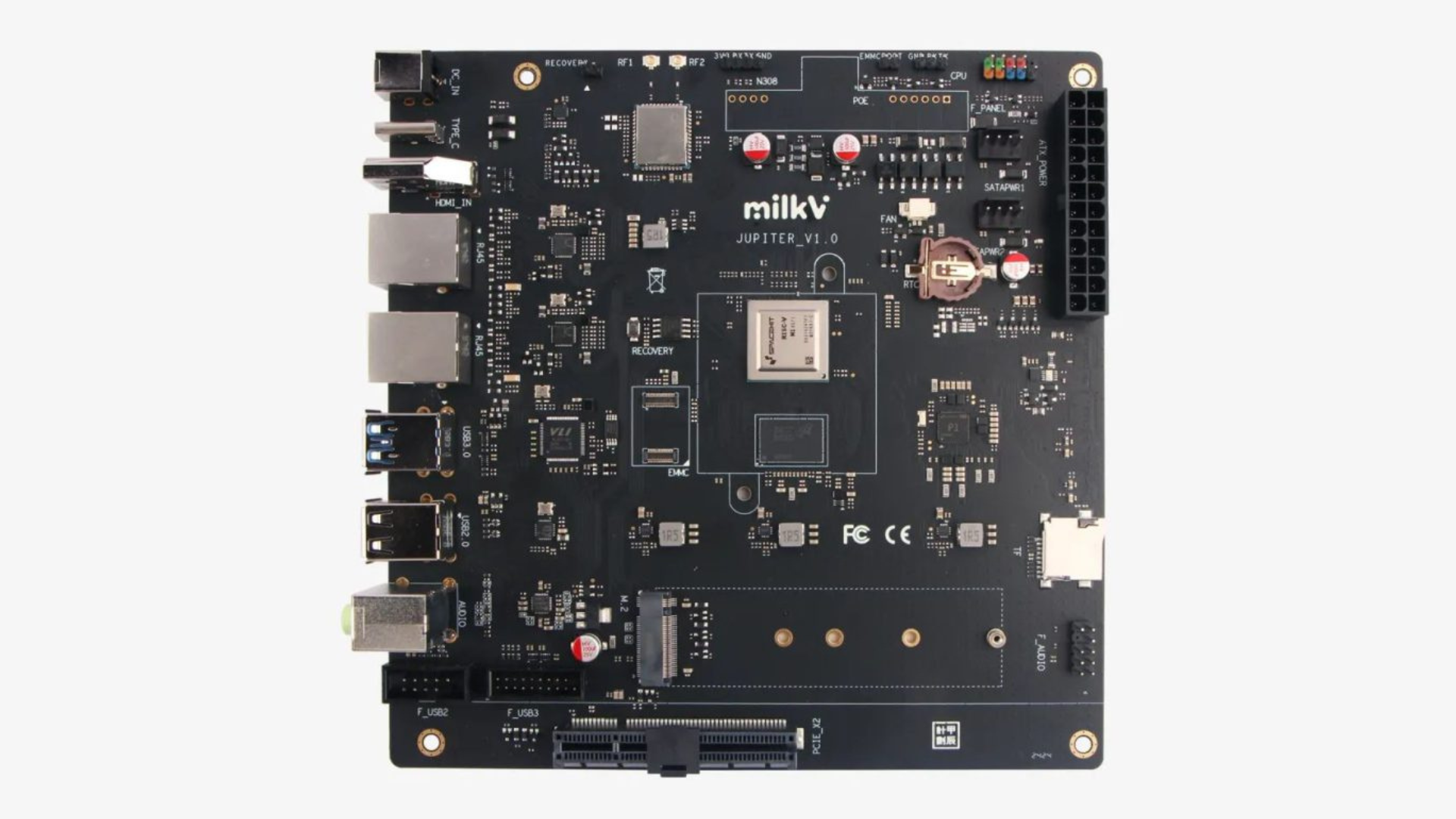Milk-V has announced theJupiter, a mini-ITX motherboard with a RISC-V processor pre-installed. A respected vendor of microcontrollers and RISC-V products, Milk-V brings “RISC-V for everyone” with Jupiter, which will ship soon.
At the Milk-V Jupiter’s core is the SpacemiT K1 or M1 processor, a duo of processors powered by eight SpacemiT X60 CPU cores. Specs on the processors and their cores differ based on your source; our best estimation is that the K1 and M1 are virtually identical CPUs running their cores between 1.6 and 2.4 GHz. The processors both contain 819 MHz Imagination BXE-2-32 graphics withVulkan1.3 and OpenCL 3.0 support and can produce 2 TOPS of AI performance.

The Jupiter will come with either 4GB, 8GB, or 16GB of LPDDR4X soldered memory. It also supports M.2 drives as long as the M.2 2280 form factor on a PCIe 2.0 bus — limiting speeds to 500 MB/s — alongside a microSD reader and eMMC connector. Jupiter provides a PCIe 2.0 x8 slot for other connectivity, providing space for a slower graphics card or more storage expansion.
At a standard 170 x 170mm mini-ITX form factor, the board provides all the standard I/O you’ll use to build a machine. Motherboard headers include 2x USB 3.0 and 2x USB 2.0 and the standard front panel connectors, plus typical ATX 24-pin power, SATA power, and PWM fan headers (no RGB headers, a real shame for the board’s target demographic). Rear-panel I/O is listed below.

Milk-V’s Jupiter is a silly method to bring RISC-V to the mainstream, but it stands a chance. A computer built on Jupiter will natively support only the Ubuntu and Fedora distros of Linux, leaving the average Windows or MacOS user in the dust. And while the CPU’s 2 TOPS and 50 kDMIPS performance is far from impressive (when was the last time you saw a company advertise with kDMIPS?), the machine may appeal to enthusiasts as a NAS with its CASA OS support.
Currently, Milk-V’s website only lists shipping options to China, but the company’s X (formerly Twitter) has confirmed U.S./worldwide shipping to begin in the first week of July. Most RISC-V fans will be looking past Jupiter to the release of the Milk-V Oasis, a similar upcoming mini-ITX product expected to offer performance orders of magnitude beyond Jupiter’s. RISC-V’s continuedsteady growththanks to the AI bubble and the growing success of Arm-based processors will continue to provide dividends to low-power computing fans.
Get Tom’s Hardware’s best news and in-depth reviews, straight to your inbox.
Sunny Grimm is a contributing writer for Tom’s Hardware. He has been building and breaking computers since 2017, serving as the resident youngster at Tom’s. From APUs to RGB, Sunny has a handle on all the latest tech news.